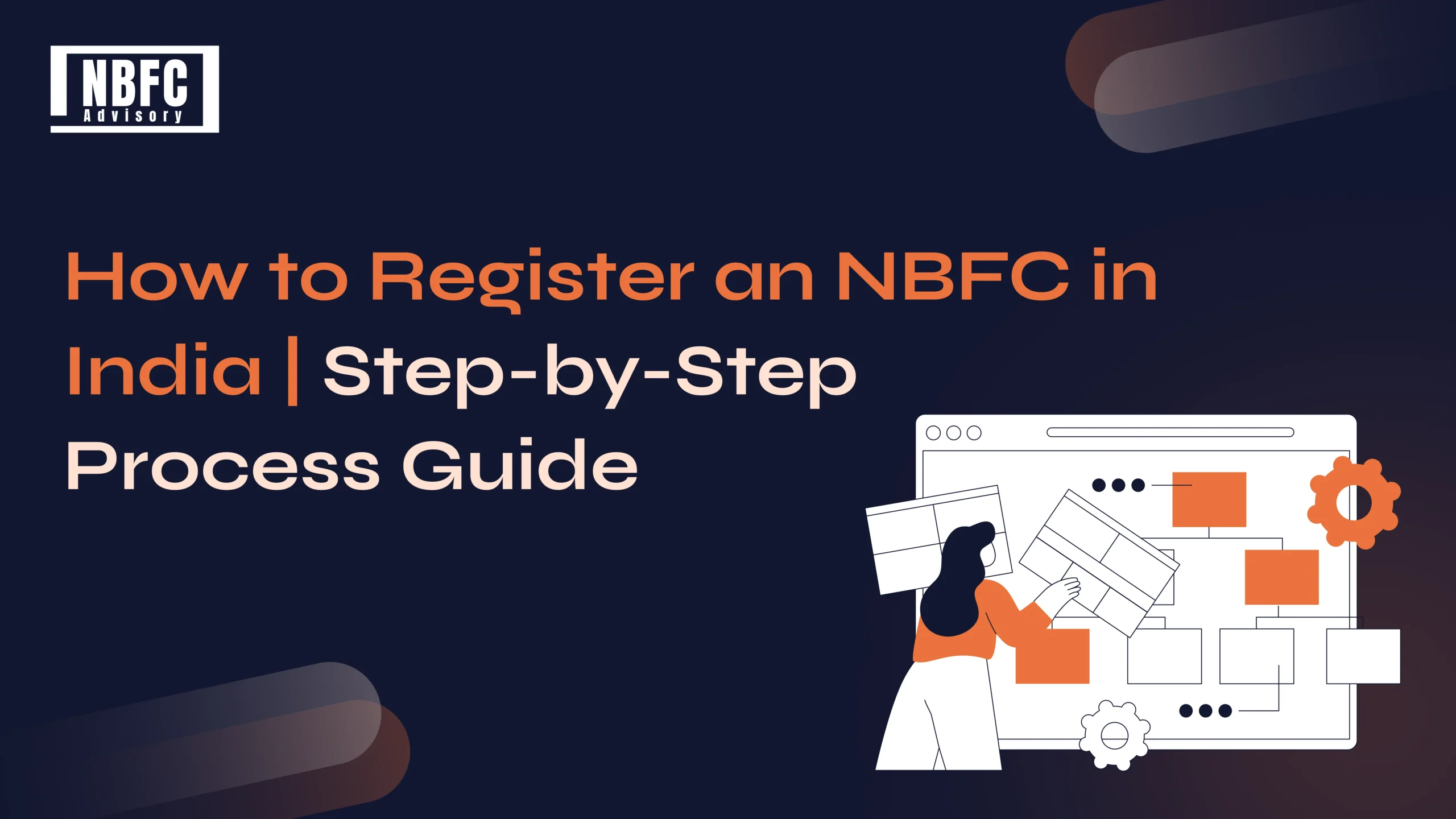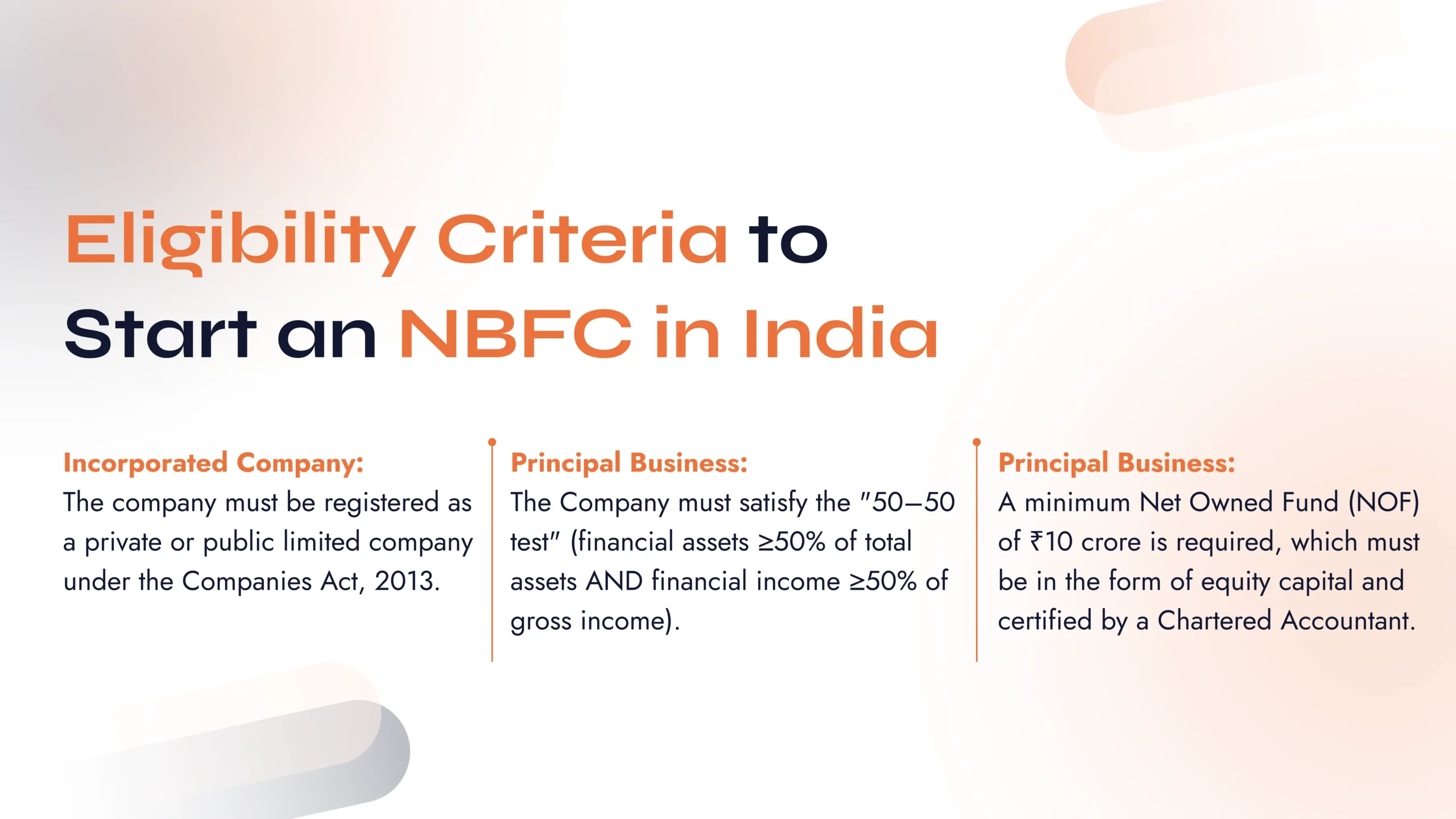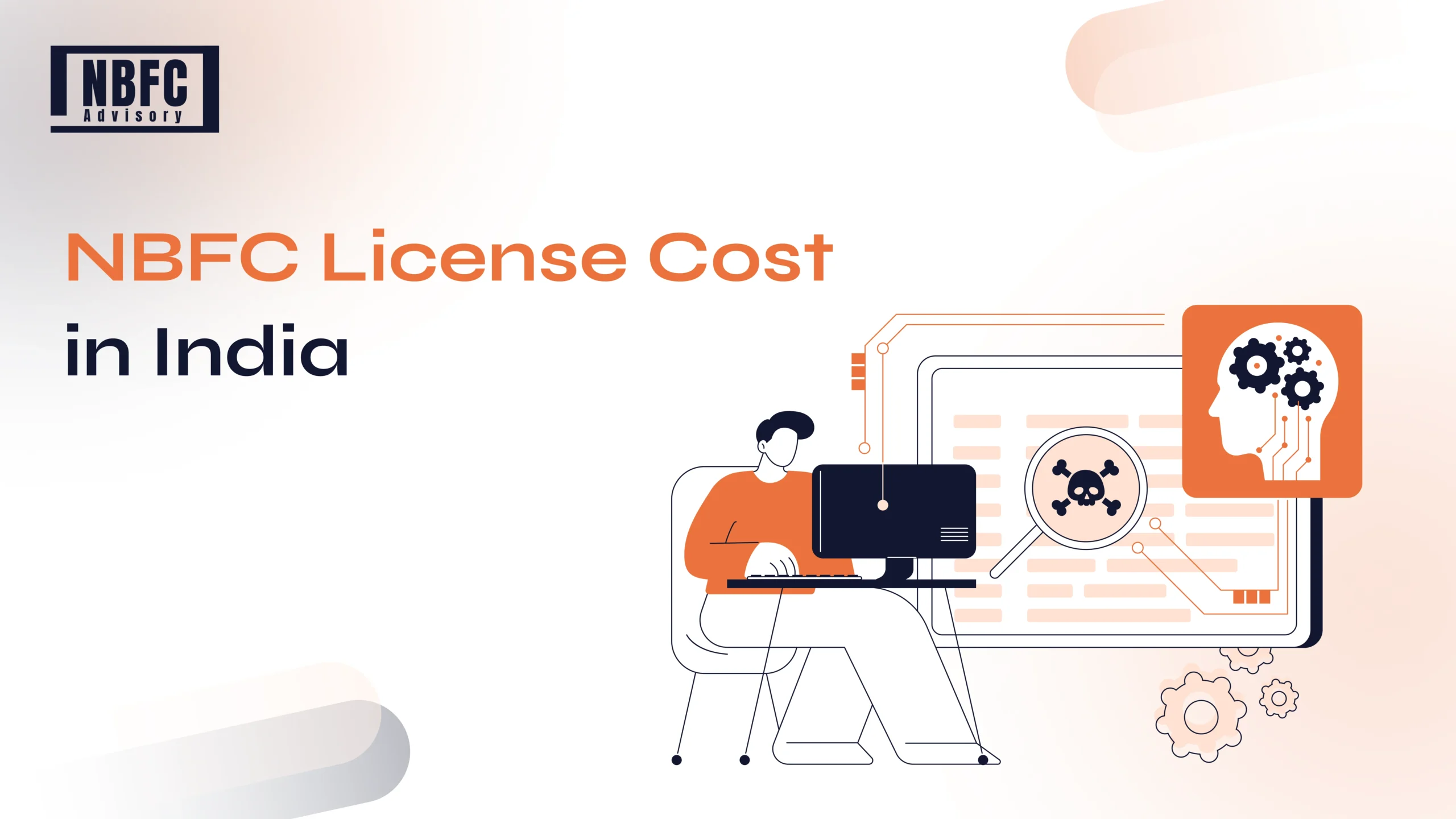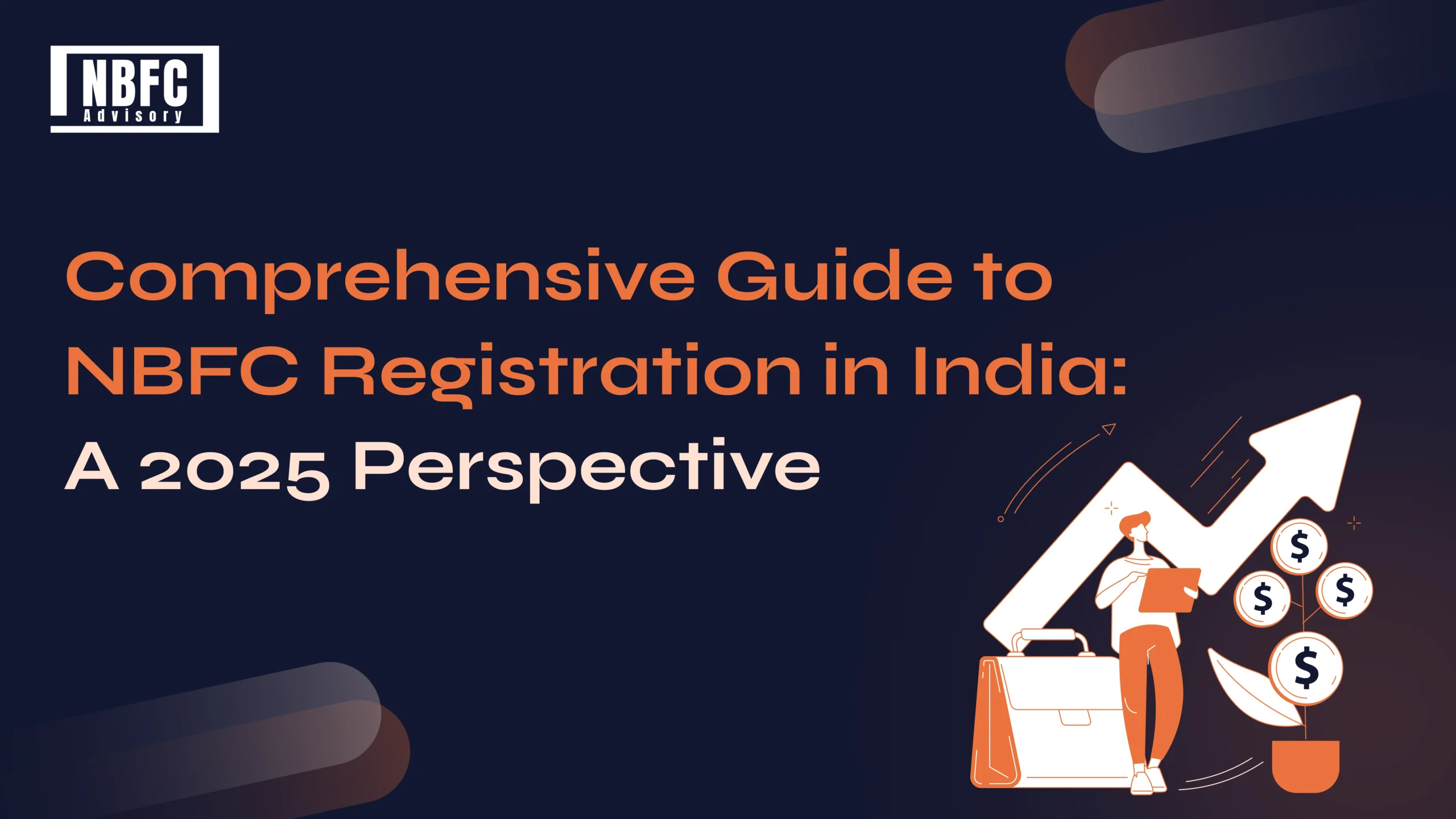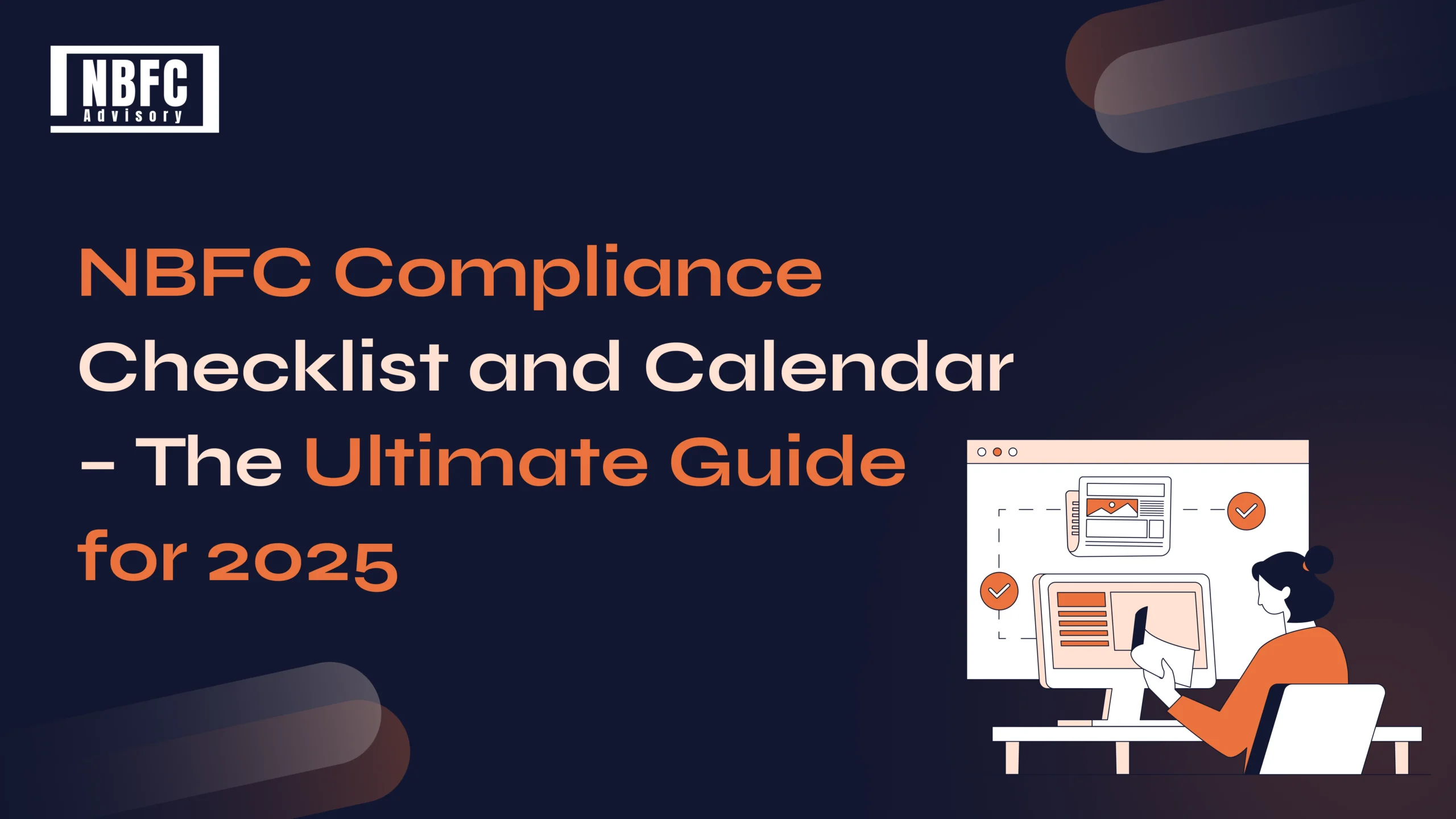India’s financial system is undergoing rapid change, driven by new technologies, shifting consumer needs, and a growing demand for flexible credit options. In the middle of this transformation, Non-Banking Financial Companies (NBFCs) are stepping up.
They’re more than just financial institutions—they’re partners in progress. Whether it’s a young entrepreneur chasing a dream, a small business trying to scale, or someone seeking a second chance, NBFCs often step in when traditional banks fail to do so. For many, they’re the missing link between a big idea and bringing it to life.
NBFCs offer services like personal and business loans, vehicle financing, and funding for infrastructure projects. They help fill a significant gap in the market where banks often fall short.
If you’re a business owner, investor, or finance enthusiast looking to start an NBFC in India, this guide provides a clear, step-by-step overview to help you get started.
What is an NBFC in India?
A Non-Banking Financial Company (NBFC) is a financial institution registered under the Companies Act, 2013 (or earlier, the Companies Act of 1956). These companies offer financial services similar to those of banks—such as loans, credit facilities, and investments—but they do not hold a banking license.
NBFCs are regulated by the Reserve Bank of India (RBI) and play a crucial role in enhancing financial access for underserved segments, including small business owners, rural customers, and individuals with limited banking histories
NBFCs typically offer:
- Loan and credit services
- Asset financing
- Investment in stocks, shares, and debentures
- Leasing and hire-purchase
- Microfinance and infrastructure financing
However, NBFCs are not permitted to accept demand deposits, issue cheques, or participate in the payments and settlements system like banks. Despite these limitations, they remain vital for financial inclusion in India.
Types of NBFCs in India
Before registering an NBFC, you need to determine which type of NBFC suits your business goals, target audience, and service model. Each type serves a different purpose and follows specific RBI regulations.
Based on Activities:
- Asset Finance Company (AFC)
- Loan Company (LC)
- Investment Company (IC)
- Infrastructure Finance Company (IFC)
- Micro Finance Institution (MFI)
- Housing Finance Company (HFC)
Based on Liabilities:
- Deposit-taking NBFCs (NBFC-D)
- Non-deposit-taking NBFCs (NBFC-ND)
Based on Layers:
- Base Layer (BL)
- Middle Layer (ML)
- Upper Layer (UL)
- Top Layer (TL)
Eligibility Criteria to Start an NBFC in India
Before you begin the NBFC registration process, make sure your company meets a few key requirements. These conditions are crucial for gaining RBI approval and operating smoothly.
- Incorporated Company:
The company must be registered as a private or public limited company under the Companies Act, 2013. - Principal Business:
The Company must satisfy the “50–50 test” (financial assets ≥50% of total assets AND financial income ≥50% of gross income). - Minimum Net Owned Fund (NOF):
A minimum Net Owned Fund (NOF) of ₹10 crore is required, which must be in the form of equity capital and certified by a Chartered Accountant.
Note: NBFC‑P2P and NBFC‑Account Aggregators (AA) continue to require ₹2 crore, while Infrastructure Finance Companies (IFCs) and Infrastructure Debt Fund‑NBFCs (IDF‑NBFCs) must maintain a minimum NOF of ₹300 crore.
- Fit and Proper Promoters:
All directors and promoters should have a clean financial and legal record. RBI conducts thorough background checks. - Relevant Experience:
At least one director must have a minimum of 10 years’ experience in banking, financial services, or NBFC operations.
Documentation Checklist
Here’s what you’ll need to prepare:
- Certificate of Incorporation
- Memorandum and Articles of Association (MOA & AOA)
- Board Resolution for NBFC registration
- Auditor’s Certificate verifying NOF
- Business plan and financial projections (3 years)
- KYC documents of directors and shareholders
- CIBIL reports for directors and shareholders
- Proof of educational and professional qualifications
- Bank statement showing NOF balance
- Organisational structure and key management details
Step-by-Step Registration Process
Here’s a step-by-step guide to registering your NBFC in India:
Step 1: Incorporate Your Company
Register a Private or Public Limited Company under the Companies Act, 2013. Make sure your object clause includes NBFC-related activities.
Step 2: Open a Bank Account and Deposit NOF
Deposit the ₹10 crore NOF into your company’s designated bank account. The funds must be in the form of fully paid-up equity capital and verified by a statutory auditor. It should remain unencumbered throughout the process.
Step 3: Gather Documents
Collect and organize all required documents as listed above.
Step 4: File Online Application on COSMOS
Submit your NBFC application on RBI’s COSMOS portal along with digital copies of the documents. You will receive a Company Application Reference Number (CARN) after successful online submission.
Step 5: Submit Physical Documents to RBI
After the online filing, submit hard copies of the documents with the RBI’s regional office.
Step 6: Application Review and Due Diligence
RBI will examine the application, verify documents, and carry out background checks.
Step 7: Receive Your NBFC License
If everything is in order, you will receive your NBFC registration certificate under Sec 45-IA of the RBI Act and can officially begin operations.
Know More: Complete Guide to Setting Up an NBFC in India
Need Help With NBFC Registration?
If you need support with the registration process, it’s wise to connect with a reliable NBFC advisory. These professionals can assist with compliance, documentation, and filing, helping you avoid delays and meet RBI standards smoothly.
Reach out to an NBFC advisory today and start your journey with confidence!
Post-Registration Compliance for NBFCs
After registration, your NBFC must follow ongoing compliance rules to remain in good standing with the RBI.
Key compliance tasks include:
- Filing Regular Returns: Submit NBS-1, NBS-2, NBS-3, NBS-9, etc., based on your NBFC category.
- Statutory Audit: Appoint an auditor and submit annual audited reports to RBI.
- Capital Adequacy Maintenance: Maintain the required CRAR (Capital to Risk Weighted Assets Ratio).
- Fair Practice Code: Implement RBI’s code to ensure fair treatment of customers.
- KYC and AML Compliance: Strictly follow Know Your Customer and Anti-Money Laundering rules.
- Internal Policies: Implement board-approved policies for credit, IT, outsourcing, and risk management.
Common Mistakes to Avoid
- Submitting incomplete or incorrect documents
- Not meeting the 50-50 test
- Failing to maintain the required NOF
- Having inexperienced directors
- Presenting a weak or unrealistic business plan
- Overlooking compliance requirements
These issues can cause delays or even lead to your application being rejected. Getting professional guidance is strongly recommended.
Benefits of Starting an NBFC in India
- Lower regulatory burden than banks
- Access to untapped markets like MSMEs and rural borrowers
- Huge growth potential in digital lending and microfinance
- Flexibility to innovate in financial products and services
Conclusion
Starting an NBFC in India is more than just a legal process—it’s about building a trusted, well-managed financial business. From setting up your company to following RBI rules, every step matters.
While the process can feel complicated, the right guidance and preparation can make it much easier. Stay up-to-date on regulations and don’t hesitate to seek expert help when needed.
Whether you’re aiming for microloans, digital lending, or infrastructure finance, NBFCs offer a great way to grow your business and contribute to India’s financial ecosystem.
FAQs
1. What is the minimum capital required to register an NBFC in India?
₹10 crores in Net Owned Funds, as per current RBI norms.
2. How long does it take to get an NBFC license?
Usually between 4 to 6 months, depending on the quality of documents and RBI processing time.
3. Can an NBFC accept deposits from the public?
Only if it is a deposit-taking NBFC (NBFC-D) and has received RBI approval.
4. Is there any registration fee payable to RBI?
No, RBI does not charge a registration fee, but there are related costs like documentation and professional services.
5. What is the difference between NBFC and a bank?
NBFCs offer loans and investment services but cannot accept demand deposits or issue cheques.
6. Can a foreign investor start an NBFC in India?
Yes, under the automatic route, subject to compliance with RBI and FEMA norms.
7. Is a physical office required for NBFC registration?
Yes, RBI expects a proper office setup; virtual offices are generally not accepted.
8. Can NBFCs offer digital loans?
Yes, but they must comply with RBI’s digital lending guidelines, which focus on transparency, consent, and data security.
9. Can NBFCs operate across the country?
Yes, unless specifically restricted by RBI, NBFCs can serve customers throughout India.
10. Do NBFCs need to submit regular reports to RBI?
Yes, based on their classification, NBFCs must submit various periodic returns and reports.

